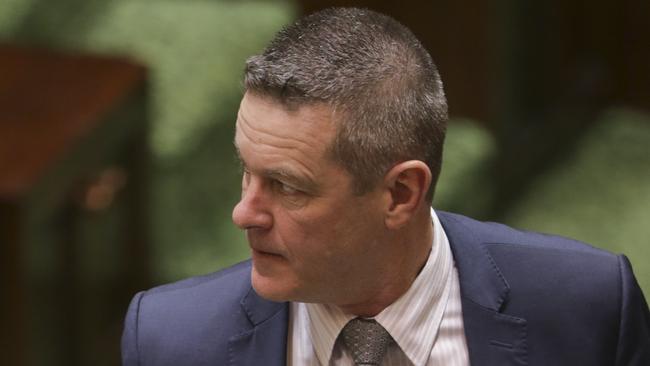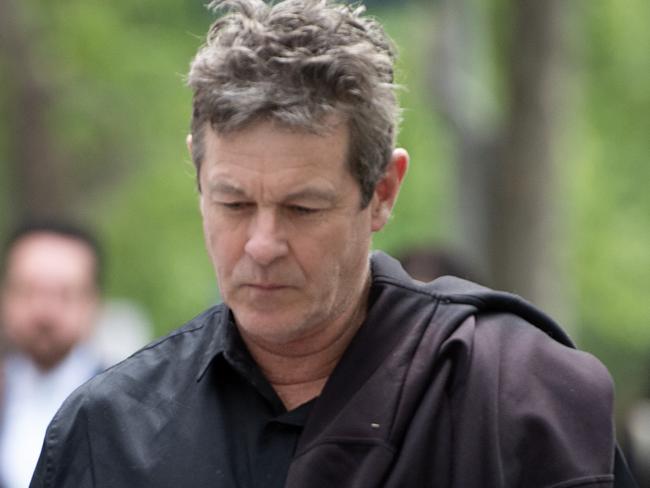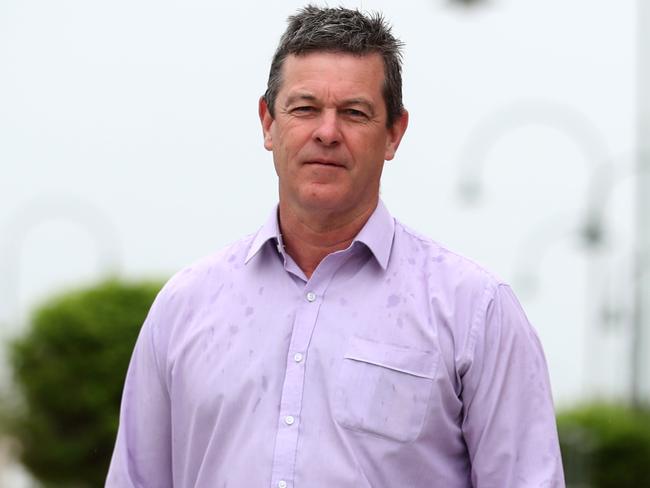Jailing Russell Northe for gambling taxpayer money an ‘error’, court told
Disgraced ex-Morwell MP Russell Northe attempted to take his own life after news broke that he had used taxpayer money to fuel a gambling addiction, a court has heard, as his lawyer argued he should not have been jailed.

Police & Courts
Don't miss out on the headlines from Police & Courts. Followed categories will be added to My News.
Disgraced ex-Morwell MP Russell Northe – who was jailed for using taxpayer money to fuel a gambling addiction – attempted to take his own life inside a motel room after news of his offending broke, a court has heard.
Northe – who was sentenced to 21 months behind bars in October last year – has sought to appeal his sentence, which his lawyers said the court got “wrong” and had not properly considered the evidence that he suffered a “long history of psychiatric ill health”.
He was jailed last year after he gambled away about $179,000 of taxpayer money that had been allocated to him for administration expenses while he was an Independent MP.
Northe was not present at his Court of Appeals hearing on Wednesday.
His lawyer Paul Smallwood told the court that “well documented” psychiatric evidence indicated that Northe suffered from major depressive disorder and had sought psychiatric help since 1999.

He submitted that the sentencing judge made an “error” in jailing Northe, with psychiatric reports indicating that his depressive symptoms were “severe”.
“Our submission is that as grave as the offending was and there is no diminishing the seriousness of it ... this sentencing was just not right,” he said.
Mr Smallwood gave chilling details about how Northe attempted to take his own life in February 2021 after he was informed by a journalist that a story would break the next day about his offending.
The court heard Northe tried booking a motel with the intention of jumping out of the window, but attempted to take his own life before he was found by a staff member and taken to hospital.
Northe was also admitted to a psychiatric hospital five days before he was sentenced.

But Justice Phillip Priest questioned whether Northe’s major depressive disorder came as a result of his offending being discovered.
“I’m not sure that the evidence stretches that far to indicate to me that the major depressive disorder has come up recently due to the alerting that his offending had been found…it’s not an unusual thing for people to become depressed once they’ve been found out,” he said.
Prosecutors submitted that the sentencing court had “full regard of the psychiatric evidence” in sentencing Northe to 21 months jail (12 months non parole), given the maximum penalty is 10 years behind bars.
It was also submitted by Northe’s legal team that the sentencing judge made an error in “presuming” that Northe would be paroled, remarking at the time that “once you’ve served and been admitted to parole … you’ll be able to adapt to new life”.
“His Honour has proceeded to sentence on assumption that he’d be paroled, which is a plain and simple error in sentencing process,” Mr Smallwood said.
But Justice Priest replied that it “seemed to be an incidental remark” rather than an error.
The court of appeal reserved its judgement and will return at a later date.




